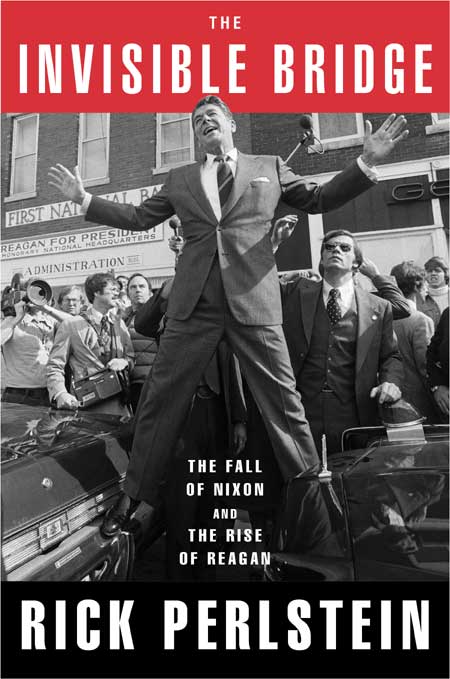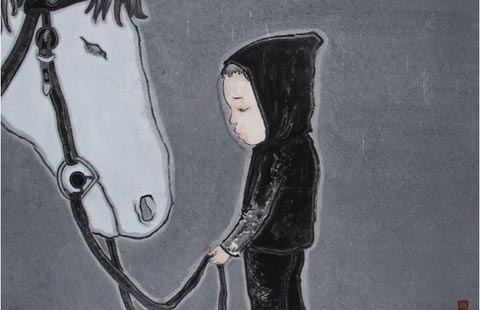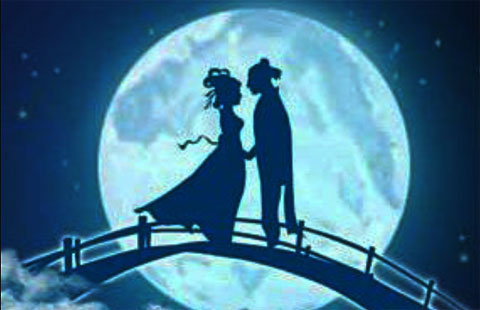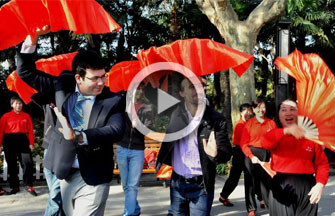 |
|
The Invisible Bridge: The Fall of Nixon and the Rise of Reagan By: Rick Perlstein Publisher: Simon & Schuster Year published: 2014 Price: $37.50 Pages: 880
|
Even Republicans piled on President Richard Nixon as the Watergate scandal wore on. But not California Governor Ronald Reagan. He said Watergate was being "blown out of proportion" and was "none of my business". Rick Perlstein writes in his new book The Invisible Bridge: The Fall of Nixon and the Rise of Reagan that incredulous reporters thought Reagan was acting like a "genial ostrich" ignoring the looming reckoning for American government.
Ostrich or no, Reagan's point of view resonated with people - or at least some people. "There were two tribes in America now," Perlstein writes early in the book. And Reagan spoke powerfully to one of those tribes: the ones who were organizing around grievances like forced busing, the ones who had the sense that the orderly America they loved was receding.
The Invisible Bridge is the story of "the right-wing insurgency bubbling barely beneath the surface" through the mid-1970s. And it's the story of the national rise of the politician who benefited the most from that insurgency.
Perlstein wrote about Senator Barry Goldwater and the rise of modern American conservatism in Before the Storm and continued his political and cultural history with Nixonland. This third book ends with Reagan's narrow loss to President Gerald Ford at the 1976 Republican convention, which served as a marker to how far the conservative movement had come in a generation.
To call this book rich in anecdotes is an understatement. Perlstein adopts a you-are-there narrative that gives the reader a sense of what average Americans took in during the turbulent period from Watergate to the 1976 elections.


























 Raymond Zhou:
Raymond Zhou: Pauline D Loh:
Pauline D Loh: Hot Pot
Hot Pot Eco China
Eco China China Dream
China Dream China Face
China Face






